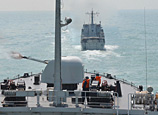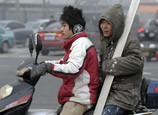
So we must stick to the following three points:
First, development is the absolute principle. Development needs peaceful, stable, and cooperative environment. No one will benefit from the Asian disorder. In the process of Asia's rise, countries in this region have jointly faced such development bottleneck as environment, resources and population. In the context of globalization, a country's domestic policies will affect other countries .So beggar- thy- neighbor policy is intolerable and solidarity will benefit all.
Second, we should not allow differences to interfere the overall situation. The successful settlement of the "tent confrontation" by China and India is a positive case. While Japan's reckless push for "nationalization of Diaoyu Islands" is a negative example. Countries should, through candid dialogue and pragmatic cooperation, gradually manage divergences and foster strategic mutual trust.
Third, the United States is the biggest external factor which influences the realization of "Asian Century". The U.S. put forward "Pacific Century" superficially, but the essence is it wants to secure "the U.S. Century". At least, it wants to grab a slice from the "Asian Century". So it launched "strategic rebalancing" policy toward Asia.
But "Asian Century" is not to exclude the existence and influence of the U.S. They should still put relations with the U.S. on the important or first position and should change the U.S. factor to a positive one to prevent it from becoming the complicated factor of Asian differences.
The author is a special commentator of People's Daily Overseas Edition and a senior researcher at the China Institute of International Studies.
Read the Chinese version: 管好分歧才有“亚洲世纪”
 |

















 Steel roses: woman police in training
Steel roses: woman police in training


![]()
